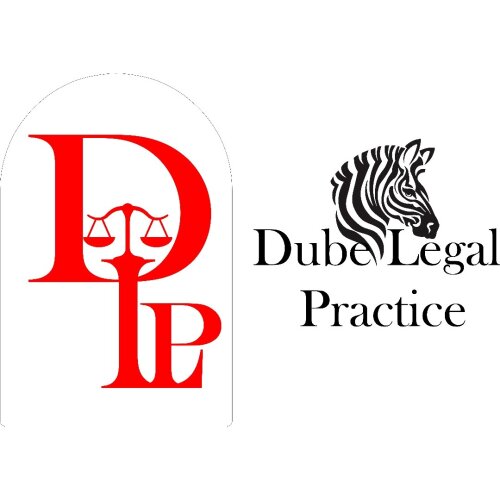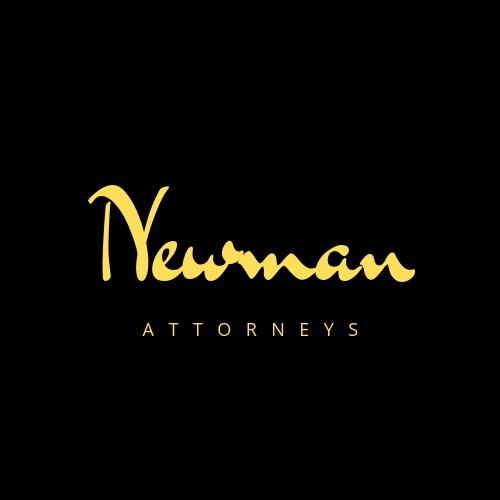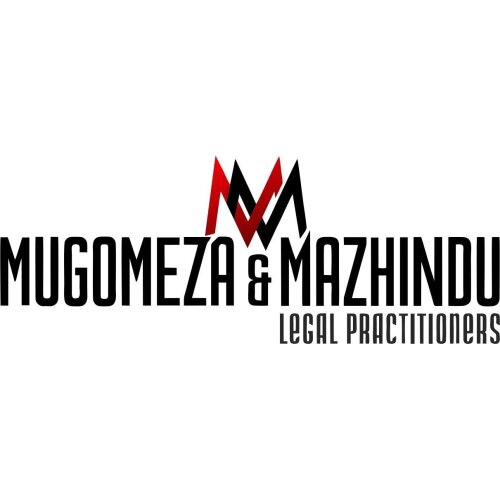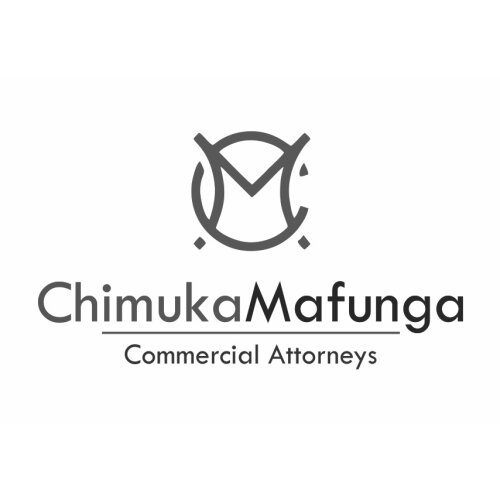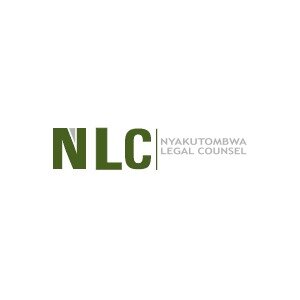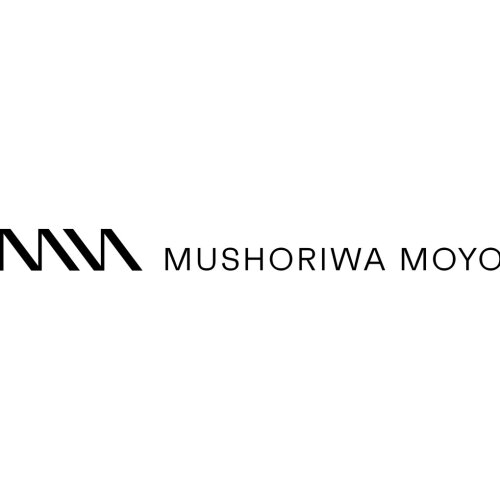Best Mining Law Lawyers in Zimbabwe
Share your needs with us, get contacted by law firms.
Free. Takes 2 min.
Or refine your search by selecting a city:
List of the best lawyers in Zimbabwe
About Mining Law in Zimbabwe
Mining Law in Zimbabwe governs the exploration, extraction, processing, and exportation of minerals found within the country. Zimbabwe is endowed with a rich array of mineral resources, including gold, platinum, diamonds, coal, and chromite. The regulatory framework for mining is rooted in the Mines and Minerals Act [Chapter 21:05], which sets out the rights, obligations, and procedures related to mining. Over the years, government policies have evolved to promote local participation, environmental protection, and transparency in the sector. Mining activities are closely regulated to ensure legal compliance, environmental stewardship, and fair economic returns for the country and stakeholders.
Why You May Need a Lawyer
There are several scenarios where an individual or business may require legal assistance regarding Mining Law in Zimbabwe. Common situations include applying for mining rights, negotiating joint ventures, resolving land disputes, complying with environmental regulations, and addressing contractual disagreements. Lawyers can help interpret complex mining legislation, liaise with government authorities, draft and review agreements, and represent clients in court or before administrative bodies. A lawyer with expertise in mining law can also safeguard your interests during mergers and acquisitions, ensure compliance with local empowerment laws, and guide you through the process of applying for or transferring mining titles.
Local Laws Overview
Zimbabwe’s mining sector is primarily regulated by the Mines and Minerals Act [Chapter 21:05]. Key areas include the issuance of prospecting and mining licenses, compliance with indigenisation and economic empowerment regulations, environmental and social impact assessments, and taxation of mineral revenues. The Act prescribes different types of mining rights such as prospecting licenses, mining claims, special grants, and exclusive prospecting orders. Additionally, the Environmental Management Act (EMA) demands that all mining projects undergo environmental impact assessments before operations commence. The government, through the Ministry of Mines and Mining Development, oversees the administration of mining activities, while the Zimbabwe Revenue Authority monitors tax and royalty compliance. Local community engagement and resource ownership regulations also influence mining operations, especially in rural and communal lands.
Frequently Asked Questions
What is required to obtain a mining license in Zimbabwe?
To obtain a mining license, you must first acquire a prospecting license. After identifying a viable mineral deposit, you can apply for a mining claim or special grant through the Mining Commissioner. Documentation, application fees, and compliance with environmental requirements are essential.
How are mining claims registered and protected?
Mining claims are registered with the Mining Commissioner. Protection is granted by continuously working the claim and complying with statutory payments such as inspection and protection fees. The law provides remedies for claim disputes and encroachments.
Who owns the minerals found in Zimbabwe?
All minerals in Zimbabwe are owned by the State, regardless of the ownership of the land. Individuals or companies can acquire the right to mine and profit from minerals under a lease, license, or grant issued by the government.
What taxes and royalties must mining companies pay?
Mining companies are required to pay royalties based on the type and quantity of mineral extracted, income tax on profits, and in some cases, capital gains tax. Rates vary depending on the mineral and production scale.
Are there restrictions on foreign ownership in the mining sector?
Yes, Zimbabwe has policies encouraging local ownership, including indigenisation laws that require majority ownership by Zimbabwean nationals in certain minerals. However, some sectors are open to full or partial foreign investment with special approval.
What are the environmental obligations of miners?
Before mining begins, operators must conduct an environmental impact assessment and obtain approval from the Environmental Management Agency. Ongoing obligations include environmental monitoring, rehabilitation of disturbed land, and compliance with environmental regulations.
How are mining disputes resolved?
Disputes related to mining claims, boundaries, compensation, or contract terms may be handled by the Mining Commissioner, administrative tribunals, or through court action. Alternative dispute resolution methods like arbitration are also common.
Can mining rights be transferred or sold?
Mining rights are transferable, subject to consent from the Ministry of Mines and Mining Development. The transfer process involves regulatory approval, payment of transfer fees, and sometimes notification to local authorities or communities.
What steps should be taken if illegal mining occurs?
If you detect illegal mining, you should report it to the local police, the Ministry of Mines and Mining Development, and the Environmental Management Agency. Legal action can be pursued to stop unauthorized activities and seek compensation if necessary.
What legal considerations exist for community and landowner relations?
Mining activities often occur on communal or private land. Operators must engage with local communities, compensate landowners in case of damage or displacement, and comply with local customary laws and agreements. Failure to do so can result in legal disputes and operational setbacks.
Additional Resources
If you need further guidance on Mining Law in Zimbabwe, consider the following resources:
- Ministry of Mines and Mining Development: Responsible for issuing licenses and regulating mining activities.
- Environmental Management Agency (EMA): Oversees environmental compliance and impact assessments.
- Zimbabwe Mining Development Corporation (ZMDC): State entity involved in mining development and investment.
- Zimbabwe Chamber of Mines: Industry association representing mining companies in policy dialogue and legal issues.
- Zimbabwe Revenue Authority (ZIMRA): Administers tax and royalty collection for the mining sector.
- Legal Aid Societies and Local Law Firms: Provide legal advice, representation, and support in mining matters.
Next Steps
If you need legal assistance with Mining Law in Zimbabwe, start by consulting with a qualified lawyer who specializes in mining or natural resources law. Gather all relevant documents, such as land titles, correspondence with authorities, mining licenses, and environmental certificates. Clearly outline your concerns or the nature of your project. Schedule an initial consultation to discuss your situation, assess your options, and develop a legal strategy. If possible, engage with industry associations for broader guidance and stay informed about changes in legislation that may impact your rights and obligations.
Legal matters in the mining sector can be complex due to evolving regulations and multiple stakeholders. Timely and informed legal advice can help protect your interests, ensure compliance, and support the successful management of your mining venture.
Lawzana helps you find the best lawyers and law firms in Zimbabwe through a curated and pre-screened list of qualified legal professionals. Our platform offers rankings and detailed profiles of attorneys and law firms, allowing you to compare based on practice areas, including Mining Law, experience, and client feedback.
Each profile includes a description of the firm's areas of practice, client reviews, team members and partners, year of establishment, spoken languages, office locations, contact information, social media presence, and any published articles or resources. Most firms on our platform speak English and are experienced in both local and international legal matters.
Get a quote from top-rated law firms in Zimbabwe — quickly, securely, and without unnecessary hassle.
Disclaimer:
The information provided on this page is for general informational purposes only and does not constitute legal advice. While we strive to ensure the accuracy and relevance of the content, legal information may change over time, and interpretations of the law can vary. You should always consult with a qualified legal professional for advice specific to your situation.
We disclaim all liability for actions taken or not taken based on the content of this page. If you believe any information is incorrect or outdated, please contact us, and we will review and update it where appropriate.
Browse mining law law firms by city in Zimbabwe
Refine your search by selecting a city.



